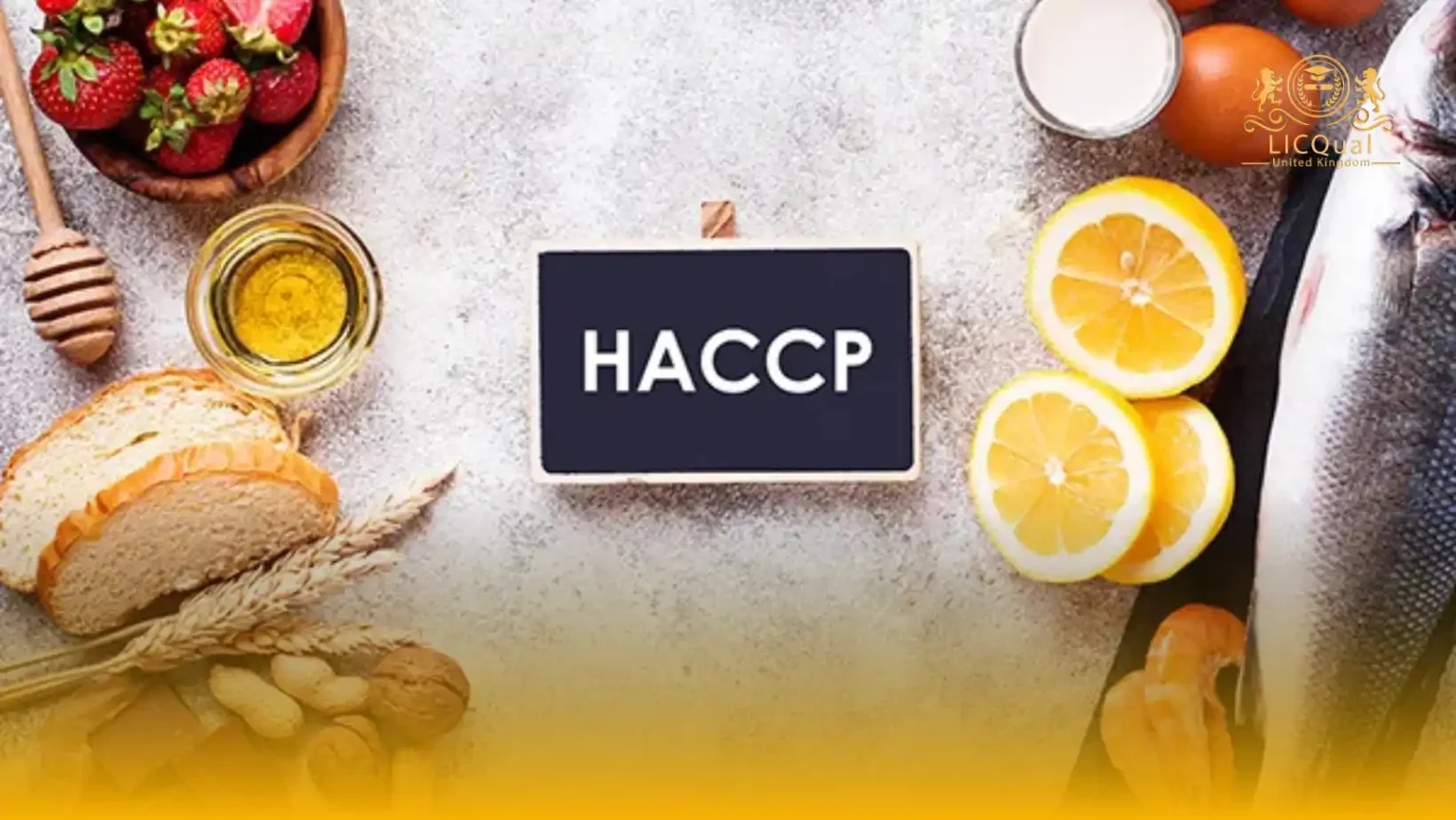In the global food industry, the ability to identify and control food safety hazards is a non-negotiable requirement for protecting public health and ensuring product integrity. The LICQual Certificate in HACCP Food Safety Hazards is an internationally accredited qualification designed to equip food industry professionals with specialized expertise in recognizing and managing the full spectrum of food safety hazards.
Rooted in the globally accepted Hazard Analysis and Critical Control Points (HACCP) methodology, this course delivers targeted knowledge essential for preventing foodborne illnesses, ensuring regulatory compliance, and maintaining high standards across all stages of the food supply chain. Whether you are involved in food production, processing, packaging, or retail, this certification is a vital step toward building a safer and more resilient food system.
The LICQual Certificate in HACCP Food Safety Hazards offers an in-depth exploration of the core types of hazards—biological, chemical, physical, and allergenic—and how they affect food safety throughout the supply chain. Participants will learn how to apply HACCP principles to conduct effective hazard analysis, implement control measures, and develop verification and monitoring systems tailored to their specific operational environments. The course emphasizes real-world applications, with case studies and scenarios that highlight common challenges and practical solutions.
Aligned with global standards such as Codex Alimentarius, ISO 22000, and GFSI benchmarks, this program ensures that learners are fully equipped to meet both international regulations and customer expectations. It also addresses emerging risks and trends in food safety, such as contamination from environmental pollutants, fraudulent ingredients, and undeclared allergens.
This course is ideal for food safety officers, quality assurance professionals, production supervisors, auditors, and compliance managers looking to strengthen their understanding of hazard control within HACCP systems. Upon successful completion, participants will gain a recognized certification that validates their expertise, enhances career opportunities, and contributes to the overall safety and trustworthiness of the food industry.
Course Overview
Qualification Title
LICQual HACCP Foundation Course
Total Units
6
Total Credits
18
GLH
72
Qualification #
LICQ2200089
Qualification Specification
To enroll in the LICQual HACCP Foundation Course , applicants must meet the following criteria:
|
Qualification# |
Unit Title |
Credits |
GLH |
|---|---|---|---|
|
LICQ2200089-1 |
Introduction to HACCP and Food Safety Management Systems |
3 |
12 |
|
LICQ2200089-2 |
Identifying Food Safety Hazards |
3 |
12 |
|
LICQ2200089-3 |
The Seven Principles of HACCP |
3 |
12 |
|
LICQ2200089-4 |
Establishing Critical Control Points (CCPs) |
3 |
12 |
|
LICQ2200089-5 |
Monitoring and Corrective Actions in HACCP |
3 |
12 |
|
LICQ2200089-6 |
HACCP Documentation and Record-Keeping |
3 |
12 |
By the end of this course, learners will be able to:
Understanding HACCP and Food Safety Management Systems
- Demonstrate a clear understanding of the core principles of HACCP and its role in food safety management.
- Explain the importance of HACCP in ensuring food safety and meeting international food safety regulations.
- Identify the key components of food safety management systems and how they support HACCP implementation in food production environments.
Identifying Food Safety Hazards
- Identify and categorize biological, chemical, and physical hazards that can affect food products at various stages of production.
- Evaluate the risks associated with different food safety hazards and their potential impact on consumer health.
- Understand the sources of hazards and how they can be controlled or eliminated in food handling and production processes.
Understanding the Seven Principles of HACCP
- Explain the seven principles of HACCP and their significance in preventing foodborne illnesses.
- Apply the principles of hazard analysis, CCPs, critical limits, monitoring, corrective actions, verification, and documentation to food safety processes.
- Demonstrate an understanding of how these principles are integrated into a HACCP plan to ensure consistent food safety.
Establishing Critical Control Points (CCPs)
- Identify Critical Control Points (CCPs) in food production processes and determine where food safety hazards can be prevented, eliminated, or reduced.
- Establish critical limits for each CCP and describe the methods used to monitor and control these points.
- Understand how to develop effective systems to manage CCPs and ensure food safety throughout the production cycle.
Monitoring and Corrective Actions in HACCP
- Develop and implement monitoring procedures to ensure CCPs are within established critical limits.
- Recognize the importance of documenting monitoring activities and corrective actions taken when deviations occur.
- Apply corrective actions to address food safety risks and ensure continuous compliance with HACCP standards.
HACCP Documentation and Record-Keeping
- Understand the role of documentation in HACCP systems and how it ensures compliance, traceability, and accountability in food safety practices.
- Develop and maintain comprehensive records, including monitoring logs, corrective actions, and verification records.
- Conduct internal audits and reviews to ensure that HACCP documentation remains accurate, complete, and up-to-date, supporting continuous improvement.
This diploma is ideal for:
Assessment and Verification
All units within this qualification are subject to internal assessment by the approved centre and external verification by LICQual. The qualification follows a criterion-referenced assessment approach, ensuring that learners meet all specified learning outcomes.
To achieve a ‘Pass’ in any unit, learners must provide valid, sufficient, and authentic evidence demonstrating their attainment of all learning outcomes and compliance with the prescribed assessment criteria. The Assessor is responsible for evaluating the evidence and determining whether the learner has successfully met the required standards.
Assessors must maintain a clear and comprehensive audit trail, documenting the basis for their assessment decisions to ensure transparency, consistency, and compliance with quality assurance requirements.







